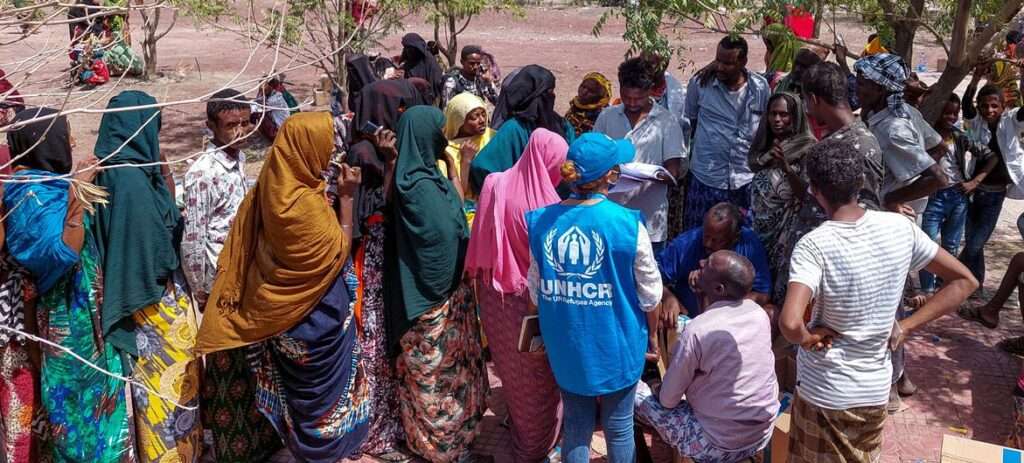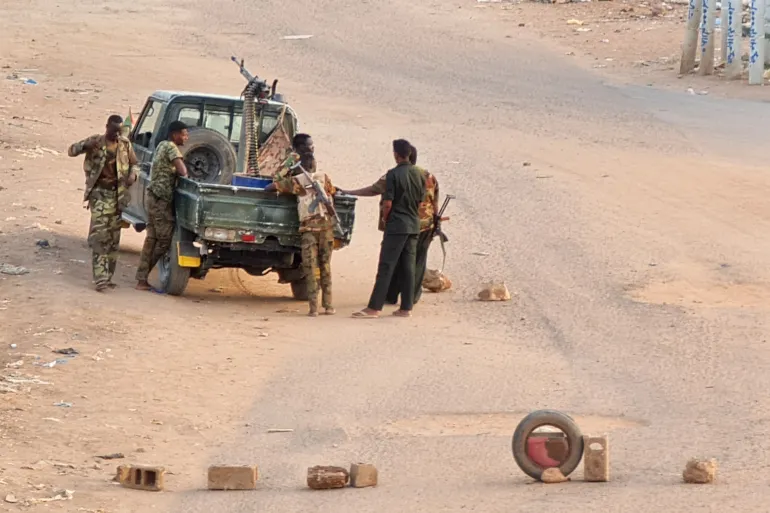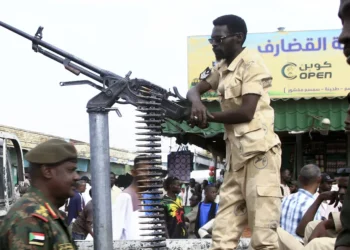I last spoke to my Eritrean friend on April 19 at Kassala, a city in eastern Sudan near the Eritrean border, Bilal Hashem said. He was escaping Sudan’s war-torn capital, Khartoum, to a refugee center and access UN relief.
He received a distress phone call from a buddy, saying, “They grabbed me, and pulled me off the bus. Then the line was then cut off,” Hashem disclosed. “If he was in a refugee camp, then I would have heard news from him. But he’s not there,” Hashem Bilal shared his frustrations.

Hashem’s friend could be one of several Eritreans, who have purportedly vanished on their way to Kassala. It has raised concerns that, they may have been abducted by Eritrea’s dictatorial leadership, or trafficked by human traffickers after fleeing conflict between the Sudanese army and the paramilitary Rapid Support Forces.
Also, it has also been reported by three Eritrean refugees that, they lost communication with pals when their bus arrived in Kassala on April 19, May 1, and May 15. They have pleaded to their peers to look for them in refugee camps, but no news have been gathered about them.
Based on UN estimates, there are approximately 126,000 Eritrean refugees in Sudan attempting to escape the violence. They account for 11% of the Eritrea’s 1.1 million refugees. With the UNHCR restricting its support to Eritreans in Kassala camps, many are compelled to decide between getting aid in a location where they could be abducted and moving to place where assistance is not available.
“We are doing the best we can to work in the conditions that are prevailing in the country. I can’t speculate about returns to Eritrea, because we have no confirmation of forced returns,” said Faith Kasina, a UNHCR spokesperson.

Vanessa Tsehaye, executive director of One Day Seyoum, a global advocacy organization for Eritrean refugees, said, “There are different reasons why UNHCR should reconsider its response to the crisis. Obviously, we have the geographic location of the camps, which is not ideal considering the allegations of forced returns to Eritrea and that should be taken seriously.”
“If UNHCR doesn’t have confirmation that this is happening, then why risk the safety of Eritreans, if there is another chance of putting them elsewhere,” Tsehaye complained.
Eritrean refugees have long been insecure in Sudan due to the two nations’ close security and diplomatic ties. According to UNHCR, 14 Eritrean asylum seekers were captured in Kassala state in 2014, after armed men halted a vehicle conveying them to a refugee camp. Six of them were minors, traveling by themselves.
However, the UN reported in May that, refugees who had left camps in the east to work in farms, have also been abducted, raising concern within Ethiopian and Eritrean asylum seekers, who have difficulties to finding employment.
“It’s not just the Eritrean government. There have been kidnappings from these camps for a very long time,” Tsehaye said. “Ransoms can go up to thousands of dollars. Eritreans are at risk and they don’t have enough protection at these camps,” she added.

Samir Tesfay, a 28-year-old born Eritrean Sudanese, claimed he and his family traveled to Gadarif, a town in eastern Sudan near the border with Ethiopia. He considered moving to Kassala because of lower rent and easier accessibility to UN assistance, but he revised his decision after losing communication with a mutual friend.
“He’s a friend of a friend, but we were in contact because I wanted to know the situation in Kassala. But his phone suddenly shut off and I haven’t heard any news from him for three weeks,” Tesfay disclosed.
Tesfay went on to say that, he struggled to pay rent and support his family, and that he has had difficulties getting a job. If the fighting continues, he plans to cross the border into Ethiopia and seek sanctuary there.
“All young Eritreans are afraid to go back to Eritrea. That’s why we are all going to Addis Ababa,” he said.
READ ALSO: Bakhmut





















